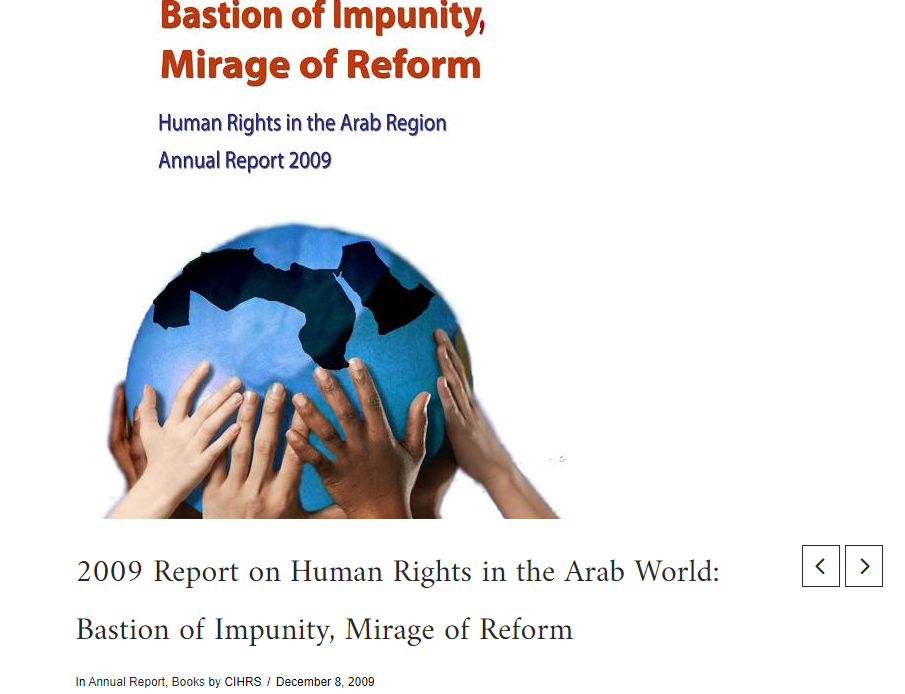2009 Report on Human Rights in the Arab World: Bastion of Impunity, Mirage of Reform | 08/12/2009
https://karama.huquq.com/2009/12/2009-report-on-human-rights-in-arab.html
2009 Report on Human Rights in the Arab World: Bastion of Impunity, Mirage of Reform | 08/12/2009 "Embrace diversity, end discriminati...


























